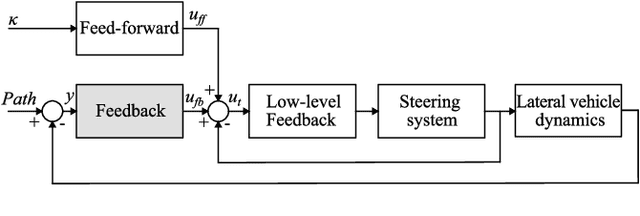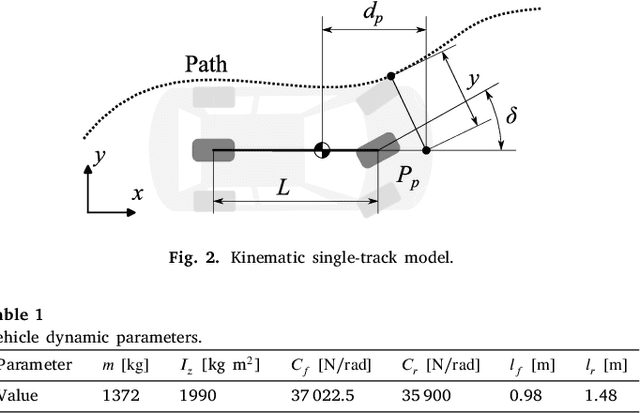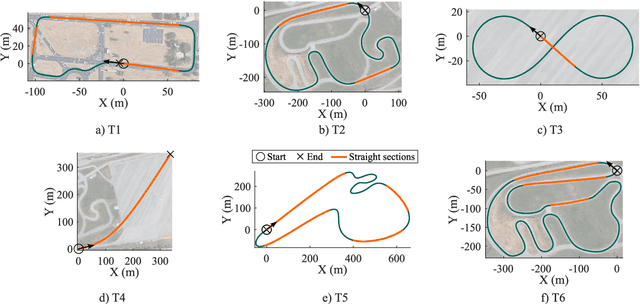Lateral control for autonomous vehicles: A comparative evaluation
Paper and Code
Nov 14, 2023



The selection of an appropriate control strategy is essential for ensuring safe operation in autonomous driving. While numerous control strategies have been developed for specific driving scenarios, a comprehensive comparative assessment of their performance using the same tuning methodology is lacking in the literature. This paper addresses this gap by presenting a systematic evaluation of state-of-the-art model-free and model-based control strategies. The objective is to evaluate and contrast the performance of these controllers across a wide range of driving scenarios, reflecting the diverse needs of autonomous vehicles. To facilitate the comparative analysis, a comprehensive set of performance metrics is selected, encompassing accuracy, robustness, and comfort. The contributions of this research include the design of a systematic tuning methodology, the use of two novel metrics for stability and comfort comparisons and the evaluation through extensive simulations and real tests in an experimental instrumented vehicle over a wide range of trajectories.
 Add to Chrome
Add to Chrome Add to Firefox
Add to Firefox Add to Edge
Add to Edge